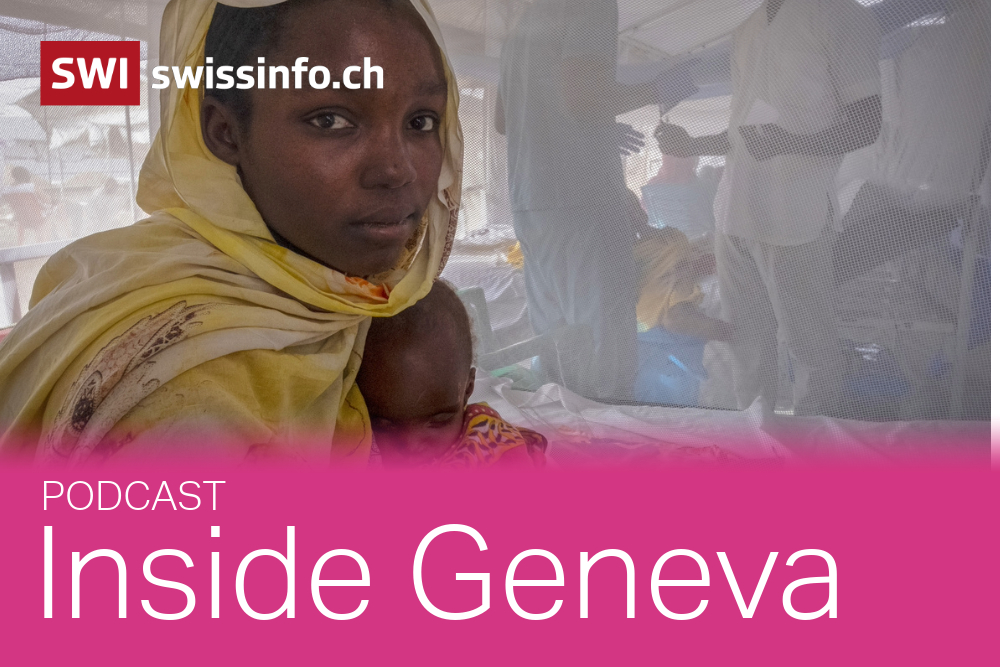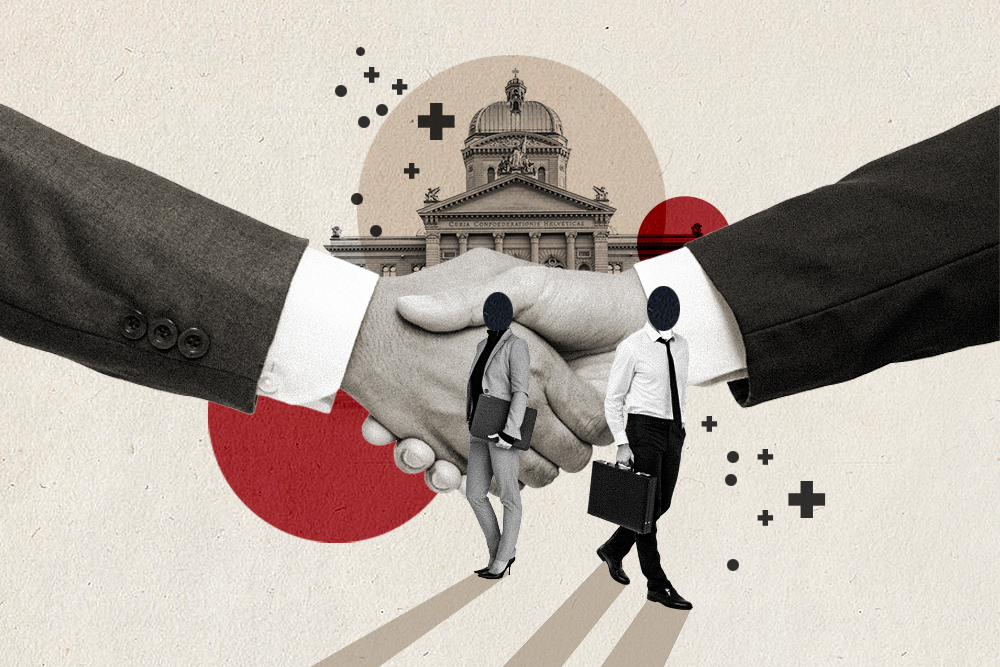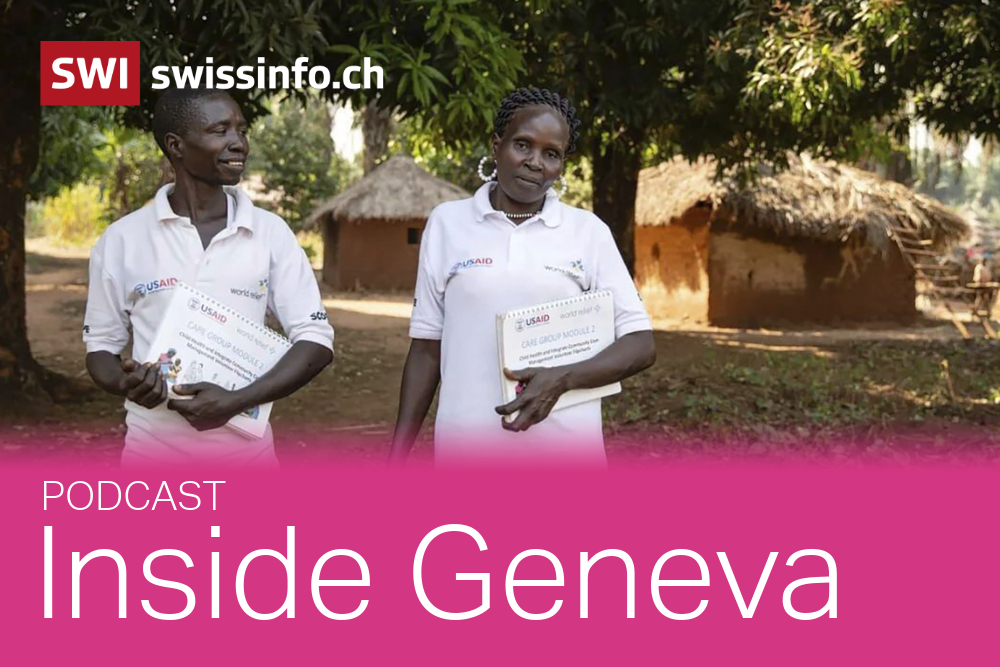Humanitarian funding cuts – the most vulnerable hit hardest
Geneva is a gloomy place these days – UN aid agencies, and NGOs doing humanitarian work, are still shell shocked by the depth and breadth of the cuts in funding.
Although many aid agencies had prepared for some cutbacks should Donald Trump return to the White House, no one, it seems, expected such a swift and brutal stop to their finances.
In this week’s Inside Geneva we take a look at the impact the cuts are already having, and in particular the impact on women and girls. Twice a week now, at the regular United Nations aid agency briefings, we hear of humanitarian programmes being cut back, or even stopped altogether. Some recent examples: in Ethiopia, where child wasting (a warning sign for possible famine) has surpassed the emergency threshold of 15%, the World Food Programme has had to suspend food aid to 650,000 malnourished women and children.

More
Inside Geneva: women, girls and cuts to humanitarian aid
In Sudan, where a staggering 25 million people face acute hunger, the WFP aims to reach 7 million over the next two months, but has not yet got the cash to pay for everything that’s needed.
Such operations are fundamental to saving lives; the United States has said that lifesaving work will not be cut, and it seems the WFP has – or will have – some money reinstated. Other agencies are not so fortunate. At UNAIDS, funding cuts, and especially the shocking and unexpected US “stop work order” on existing projects, are causing havoc.
“The devastation of services, both HIV prevention and treatment services, has truly been seismic”, Angeli Achrekar, deputy executive director for UNAIDS’ programme branch tells Inside Geneva. “Women and girls particularly on the continent of Africa are hit very hard.”
In Africa, Achrekar explains, women and girls are three times more likely than men to be living with HIV. For many, the US stop work order has meant a sudden end to expected treatment. “We are seeing pregnant women, for example, going into clinics, women that may have HIV that are not being tested,” says Achrekar. “Then if they are positive, and not put on treatment, their unborn child {will be} born positive with HIV. We’re seeing prevention services just shuttered completely.”
+ Over the next few days, SWI swissinfo.ch will be publishing a series on the future of humanitarian aid post-Trump. The first episode, which looks at how the cuts will affect the way the sector works, is available in French here.
Waiver or no waiver?
UNAIDS is trying to take comfort from vague statements from some US State Department officials that lifesaving services for pregnant and breastfeeding women will receive a waiver from the cuts. Achrekar believes HIV prevention should be classed as lifesaving for pregnant women and their babies.
Unfortunately, the answer remains unclear. The US said on January 19 that US funded programmes would be subject to a 90 day “assessment”, and then informed whether their funding would be restarted, or whether the stop work order had become permanent. Now, UNAIDS understands, the 90 days has been extended for another month, prolonging the uncertainty.
At the same time, many agencies who think they have cast iron assurances that they will get waivers are still waiting. The staff at USAID who would have implemented the waivers have lost their jobs. The financial systems to free up the funds no longer function.
Maternal mortality
Other forms of care for women and children have been hit hard too. The UN Population Fund (UNFPA) has long been on the American right’s least favourite list, because it offers reproductive health services, including “safe and voluntary” contraception. Contrary to wild accusations in the rightwing media, the UNFPA does not promote, fund, or offer abortions.
What it does primarily, is offer maternal health care. Now its mother and baby clinics in Afghanistan have been shuttered. UNFPA’s Sarah Craven describes the cuts as “devastating”. Although the agency had been preparing for a loss of funding under a second Trump administration, “we were surprised by the amount of contracts and agreements that were suddenly facing a stop work order or were terminated,” Craven tells Inside Geneva.
What is especially frustrating for UN agencies is to see progress, hard won over decades, rolled back in a matter of weeks. Globally, maternal mortality has been falling, thanks in large part to the work of agencies like UNFPA, the WHO, and Unicef. But, Craven says, risks for mothers are still unnecessarily high. “Right now, a woman dies of a preventable form of maternal mortality every two minutes,” she explains. “That’s unacceptable. What is one of the grants that the US just cut? To support the training and salaries for midwives.”
Easy to destroy, hard to rebuild
The growing fear now is that the damage done in just a few short weeks will take years to repair. As SWI correspondent Dorian Burkhalter points out on Inside Geneva “it’s much easier to demolish a house than it is to build one.”
Burkhalter has been keeping a close eye on the impact of the funding cuts, and his series of in-depth articles on the topic will appear on SWI at the start of May.
One thing he has noticed is a US tendency to slash support for programmes related to gender, climate, or minorities. Citing the questionnaire recently sent by the US to aid agencies asking about such programmes, Burkhalter describes the questions as “a MAGA checklist”, in which funding for anything that deviates from current US ideology will be stopped.
For women, girls, gay men seeking HIV counselling or treatment, for communities facing food insecurity or rising sea levels because of climate change, this is very bad news.
Particularly chilling, Burkhalter points out, is that if UN aid agencies have to stop work and leave crisis zones, we may never know the extent of the damage. Our understanding of the spread of HIV, or levels and causes of maternal mortality, are largely thanks to UN assessment and analysis. Without that, we may never even know how many young mothers have died, or how many babies have been born HIV positive.
Please listen to our in-depth discussion on Inside Geneva, and read Dorian Burkhalter’s articles. I’ll leave you with two thoughts from our guests on this week’s podcast. First, from Aida El-Sayed Abdullah, Secretary General of the Sudanese Red Crescent, who was in Geneva this month to try to raise awareness for the needs in Sudan.
She and her Red Crescent volunteers had been working with UNFPA to support thousands of survivors of sexual violence, which, in Sudan’s conflict, is occurring with horrific frequency. Now that work is at risk, but Abdullah, displaced herself from Khartoum, will not give up.
“I have to have hope,” she tells Inside Geneva. “I am the leader of the Sudanese Red Crescent Society. I have 12,000 volunteers behind me. So I always have to be really strong, and give hope to everybody to continue serving Sudan.”
And finally, Angeli Achrekar of UNAIDS, who reminds us that of all the UN’s sustainable development goals, the one to end HIV/AIDS was the closest to being achieved. “We were so close to ending AIDS, full stop. And we could very well be turning back completely. All those years, all these years of work, dedication and progress.”
vm
More

In compliance with the JTI standards
More: SWI swissinfo.ch certified by the Journalism Trust Initiative













You can find an overview of ongoing debates with our journalists here . Please join us!
If you want to start a conversation about a topic raised in this article or want to report factual errors, email us at english@swissinfo.ch.